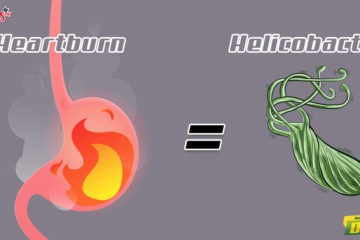I want to begin this section by saying that the purpose of these words is not to scare or alarm you. My desire is to inform and offer all possible points of view on gastritis and its relationship to cancer.
First let’s clarify some definitions:
· Gastritis: inflammation of the gastric mucosa.
· Acute gastritis: inflammation of the gastric mucosa of sudden onset and short duration.
· Chronic gastritis: inflammation of the gastric mucosa over an extended period of time.
I will not go into detail about the many varieties of gastritis that exist. However, all are similar in their indiscriminate attack by gastric acid and substances that irritate cells of the mucosa and intestinal wall. This is what causes the multiple symptoms that you know well and also the complications that I will mention next:
BLOG: NATURAL ALTERNATIVES FOR GASTRITIS
· Dysplasia: A precursor lesion for the development of gastric cancer
· Metaplasia: is a change in gastric mucosa in which the gastric epithelium is replaced by a specialized intestinal epithelium
· Adenocarcinoma: This is already a cancer.
BLOG: FOOD PERMITTED FOR PEOPLE WITH GASTRITIS
I’ll explain in a simple way the last three definitions. The gastric cells are constantly attacked by gastric juices and other irritating substances (take into account that there is no longer a mucosa to protect them). In order to defend themselves they try to mutate or transform into a class of cells that are more resistant to the acid and other substances. When that transformation is complete it is called METAPLASIA. When it is incomplete it is known as DYSPLASIA and this can be transformed into an ADENOCARCINOMA (Cancer).
Actually, it is more complicated in its final explanation, but with this I have given you an idea of what happens inside our digestive system. It is important to know that metaplasias and low-grade dysplasias are usually reversible. With medication and care our stomach has a wonderful ability to recover completely.
What about Helicobacter pylori and cancer?
Well this is another story. To explain in a simple way I put the following example: Imagine you have a vehicle with a few years of use. It has not been maintained well, the engine makes strange noises, and the tires are smooth. Driving such a vehicle predisposes us to having an accident, no?
TESTIMONY OF A PERSON WITH GASTRITIS. WHAT TO DO?
The same happens with gastritis and that it is caused by the presence of Helicobacter pylori. If it is not treated and eradicated it appears to foment the development of stomach cancer.
So what are the tips to follow?
If you have been suffering from gastrointestinal complaints for more than a month, you should visit your doctor. You should do this not because you may have cancer, but because you should have a check-up to know the problem and possible treatments. To give an example if I’m coughing for more than a month, it’s obvious that I have to visit the doctor because something is not right in my body.
If you have been diagnosed as a carrier of the bacterium Helicobacter pylori, you should follow an eradication treatment. The only treatment tested is the combination of gastroprotectants (PPI, Anti-H2) and antibiotics. Check with your doctor.
My best wishes for good health to all
Dr. Rod C.
Master Degree in Nutrition
7-72-216
-
Product on sale
 D-PROBIOTIC HERBAL SUPPLEMENT 4 PACKOriginal price was: $240.00.$170.00Current price is: $170.00.
D-PROBIOTIC HERBAL SUPPLEMENT 4 PACKOriginal price was: $240.00.$170.00Current price is: $170.00. -
Product on sale
 D-PROBIOTIC HERBAL SUPPLEMENT DUO PACKOriginal price was: $120.00.$90.00Current price is: $90.00.
D-PROBIOTIC HERBAL SUPPLEMENT DUO PACKOriginal price was: $120.00.$90.00Current price is: $90.00. -
Product on sale
 D-PROBIOTIC HERBAL SUPPLEMENTOriginal price was: $60.00.$50.00Current price is: $50.00.
D-PROBIOTIC HERBAL SUPPLEMENTOriginal price was: $60.00.$50.00Current price is: $50.00.





0 Comments